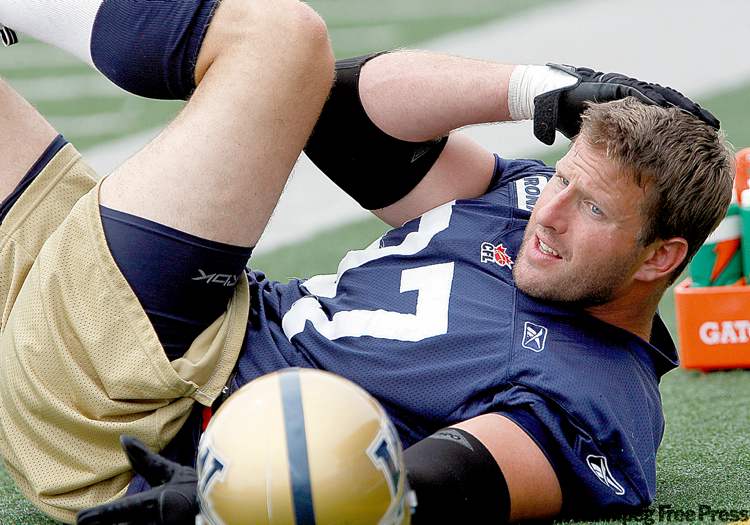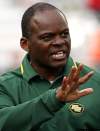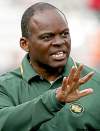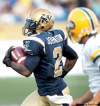Is praise poison? In the eyes of some
Many insist kind words make for a soft player
Advertisement
Read this article for free:
or
Already have an account? Log in here »
To continue reading, please subscribe:
Monthly Digital Subscription
$1 per week for 24 weeks*
- Enjoy unlimited reading on winnipegfreepress.com
- Read the E-Edition, our digital replica newspaper
- Access News Break, our award-winning app
- Play interactive puzzles
*Billed as $4.00 plus GST every four weeks. After 24 weeks, price increases to the regular rate of $19.00 plus GST every four weeks. Offer available to new and qualified returning subscribers only. Cancel any time.
Monthly Digital Subscription
$4.75/week*
- Enjoy unlimited reading on winnipegfreepress.com
- Read the E-Edition, our digital replica newspaper
- Access News Break, our award-winning app
- Play interactive puzzles
*Billed as $19 plus GST every four weeks. Cancel any time.
To continue reading, please subscribe:
Add Free Press access to your Brandon Sun subscription for only an additional
$1 for the first 4 weeks*
*Your next subscription payment will increase by $1.00 and you will be charged $16.99 plus GST for four weeks. After four weeks, your payment will increase to $23.99 plus GST every four weeks.
Read unlimited articles for free today:
or
Already have an account? Log in here »
Hey there, time traveller!
This article was published 27/07/2010 (5555 days ago), so information in it may no longer be current.
When you are on a young team and a predominantly new team, it is one thing to see and admire how the group responds when challenged and confronted with a pressure situation, and quite another thing altogether to see how the club performs after the praise is effusive and the compliments are aplenty.
That is the challenge that faces this roster this week as we prepare to go on the road to face Calgary on Saturday, a challenge at which we may have failed earlier in the season after a big win in the home opener against Hamilton.
During my short stint in the NFL, it was fair to say I wasn’t exactly overwhelmed on a daily basis with compliments on my performance.

Whether that was entirely a derivative of my play and abilities or just the nature of my defensive line coach at the time, I’ll never be completely sure, but there was one thing I did notice about the teaching style of Earl Leggett — my position boss at the time — he absolutely hated anyone or anything that paid his players a compliment.
Unusual
This may seem like an unusual tactic, having an absolute aversion to congratulating or encouraging your players, especially when their play is outstanding, but this old-school coach — who Howie Long asked to introduce him when he made the NFL Hall of Fame (which is apparently quite the honour) — was dead-set on his opinion of praising athletes. Quite frankly, he thought it made them soft.
As mentioned, when your abilities are challenged on a daily basis just to stay on the roster, the compliments one receives over the course of four years in the NFL are extremely rare and few and far between, which is probably why I remember verbatim almost every single one I got.
In 1998, after I had started the third game of my career against the Philadelphia Eagles, I remember I had a notable statistical Sunday afternoon with eight tackles.
In our team meeting the next day in the amphitheatre of Redskin Park, our head coach, Norv Turner, in his review of the win against the Eagles, simply stated something along the lines that, "Our rookie nose tackle seems to be picking it up," along with a number of other fresh faces that had been forced into regular playing time and starting roles due to injuries.
It seemed before he had even finished pausing at the end of the sentence, we all heard a frustrated, "Oh, great," come from the back of the auditorium where the other coaches sat. Coach Turner immediately queried coach Leggett as to the reason for his interruption and outburst, to which Earl responded, "Well just when he was starting to amount to something you had to go and do that. Now he ain’t gonna be worth a $#!& the rest of the week."
Whether he was right or not and whether I was worth a $#!& the rest of the week, I do not recall, but it is an interesting perspective on the motivational processes of professional athletes and how some coaches, who have been in the business for long spells, feel they should be handled in order to keep their edge.
Praise
Earl thought, in all his years of playing and coaching in the NFL that the minute you starting heaping praise on an athlete and telling him how good he was or how well he performed, he wouldn’t be worth a damn anymore unless you were threatening his profession, and there is some evidence backing this theory.
It’s very similar to the story we have all heard about the highly successful athlete who, when he reflects on his career and upbringing, remarks on his estranged relationship with his father and how he felt he could never seem to live up to his dad’s expectations or ever make him proud of what he had accomplished, driving him to higher and higher heights just to gain his acceptance.
Of course, on the flip side there are those athletes who thrive off the praise and encouragement they get from their coaches and mentors, but you don’t find that curriculum too often at the school of hard knocks.
Instilling that fire, that sense that no matter what you have achieved in a singular moment or season, that you still really haven’t accomplished anything in the grand scheme of things, is what many of the best in the game feel is the only way to get the most out of their athletes.
Earl always thought he got the most out of his players when they were insecure, paranoid, uncertain of where they stood, and most certainly not rewarded for their achievements, and he went out of his way to foster these qualities.
You always knew you had a good day at practice when he simply didn’t speak to you or curse you out.
It’s a tough and brutal way to coach a group of young men, but in a performance-based business where warm fuzzies are an afterthought and the awareness of the sport and the maturation of the players aren’t a given, some feel it’s the most effective.
When you find yourself part of a team, however, that is mature and focused enough to carry a chip on their shoulder and play like they have something to prove week in and week out, no matter what successes or failures have transpired the previous week, is when you can begin to count on consistent results and efforts, and see the record reflect as much.
Doug Brown, always a hard-hitting defensive lineman and frequently a hard-hitting columnist, appears Tuesdays in the Free Press.









